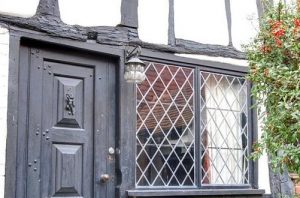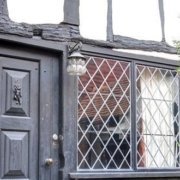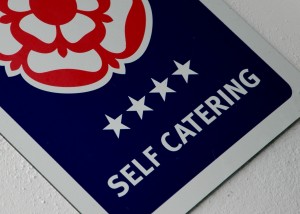 As a nation we love our history and heritage; there’s a reason National Trust properties are some of the most popular venues to visit across the country no matter what the season. A recent survey by Historic England has now revealed that the owners of listed buildings are also proud with their own stake in a yester year.
As a nation we love our history and heritage; there’s a reason National Trust properties are some of the most popular venues to visit across the country no matter what the season. A recent survey by Historic England has now revealed that the owners of listed buildings are also proud with their own stake in a yester year.
For the report 1,000 privately owned listed building owners were surveyed, with 93% of those asked seeing their property as important to local character.
If you own your own slice of English heritage then you’ll need to be familiar with the obligations and responsibilities that come with owning a listed property, particularly when it comes to making modifications or changes to your building (as may be the case with the ever changing needs and demands of visitors).
Listed Building Consent (LBC)
As so many historic properties are privately owned (some two thirds of the listed properties across the UK are in private ownership), it is up to the homeowners to ensure that proper maintenance is carried out in order to preserve these wonderful buildings. As part of this, there is sometimes a need to apply for Listed Building Consent (LBC). This building consent must come from your local planning authority, and it is needed if you want to alter or extend a listed building in a way that affects its character or appearance.
Understanding which work requires LBC
88% of owners recognise the importance of Listed Building Consent, which is good because unauthorised work is a criminal offence which can result in prosecution. Whilst most owners have reported a positive experience when applying for LBC, one third of people have had a bad experience.
The survey shows that there is a lot of confusion around Listed Building Consent as not everyone knows what types of work require the consent. It can also seem like a long and complex process, which also puts owners off. For clear advice, take a look at Historic England’s LBC page here.
General Maintenance can be carried out without consent
It is however ok to carry out general maintenance without consent. The survey has shown that historic building owners take good care of their properties, with two thirds of them carrying out regular maintenance (which is incredibly important if you’re welcoming guests to your property).
45% of owners clear gutters and pipes annually (which we recommend as a minimum), whilst 36% clear roof coverings and chimneys annually (which again is a minimum figure you should be adhering to).
Only 10% of listed building owners paint and repairs windows and doors every year, with 58% opting to do this every 2 to 5 years.
Maintaining your listed building to a high standard isn’t just good for the property itself, it is also great for drawing in holiday let visitors, who as you know, come with increasing expectations and standards each and every year.
Boshers are specialist providers of Listed Holiday Home Insurance. For more information on how a specialist insurer can help and support your holiday home business, please give us a call on 01237 429444.
Follow this link for posts similar to Insurance for Listed Holiday Lets with Heritage and other useful resources for holiday home owners.
You may also find the following post for Listed Holiday Let owners of interest:


 Many holiday homeowners will proudly display their award wins and certifications on entry to, or outside their property. If your accommodation is of a high quality it’s only right that you’ll want people to know, and tasteful positioning of
Many holiday homeowners will proudly display their award wins and certifications on entry to, or outside their property. If your accommodation is of a high quality it’s only right that you’ll want people to know, and tasteful positioning of